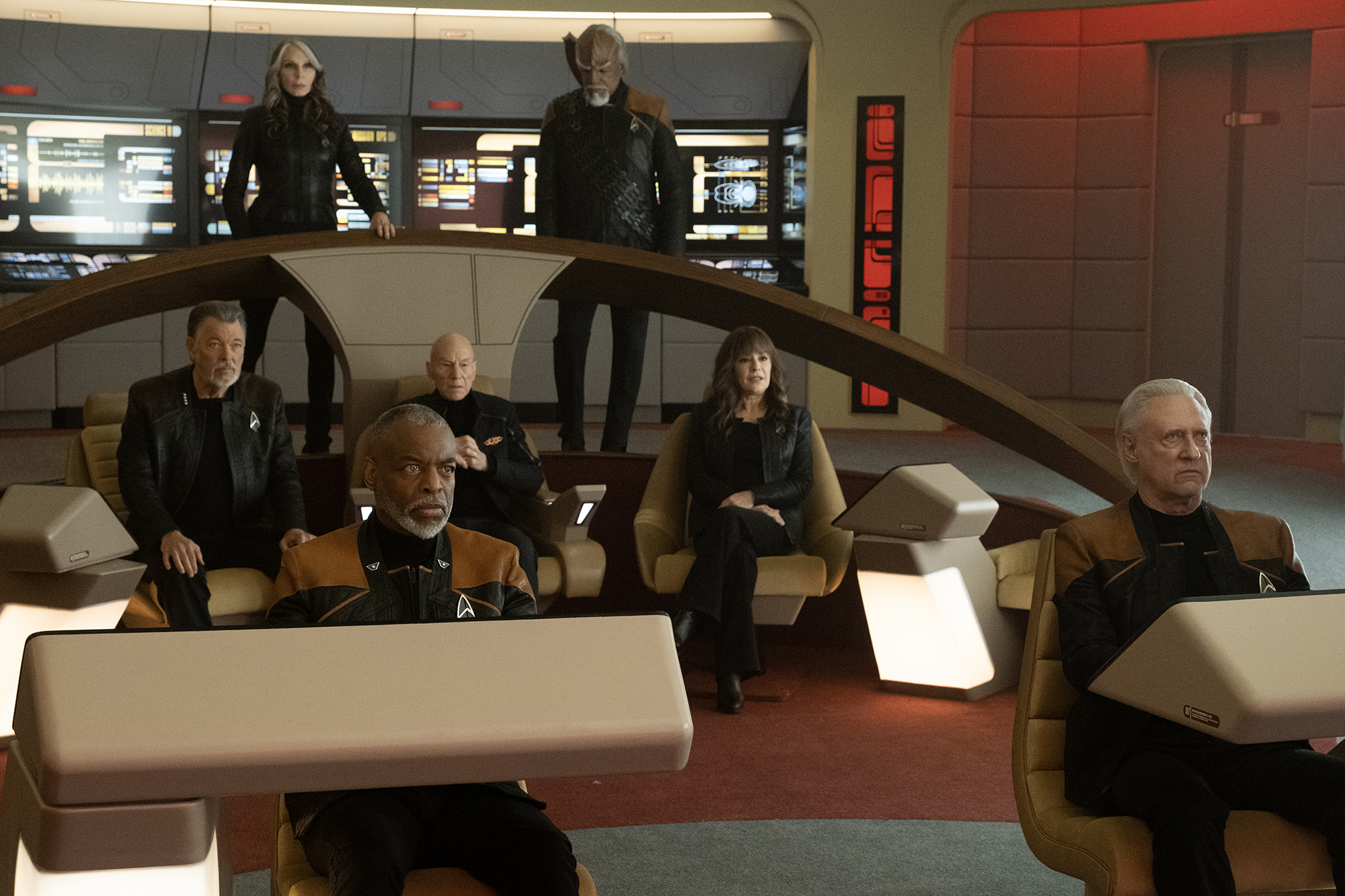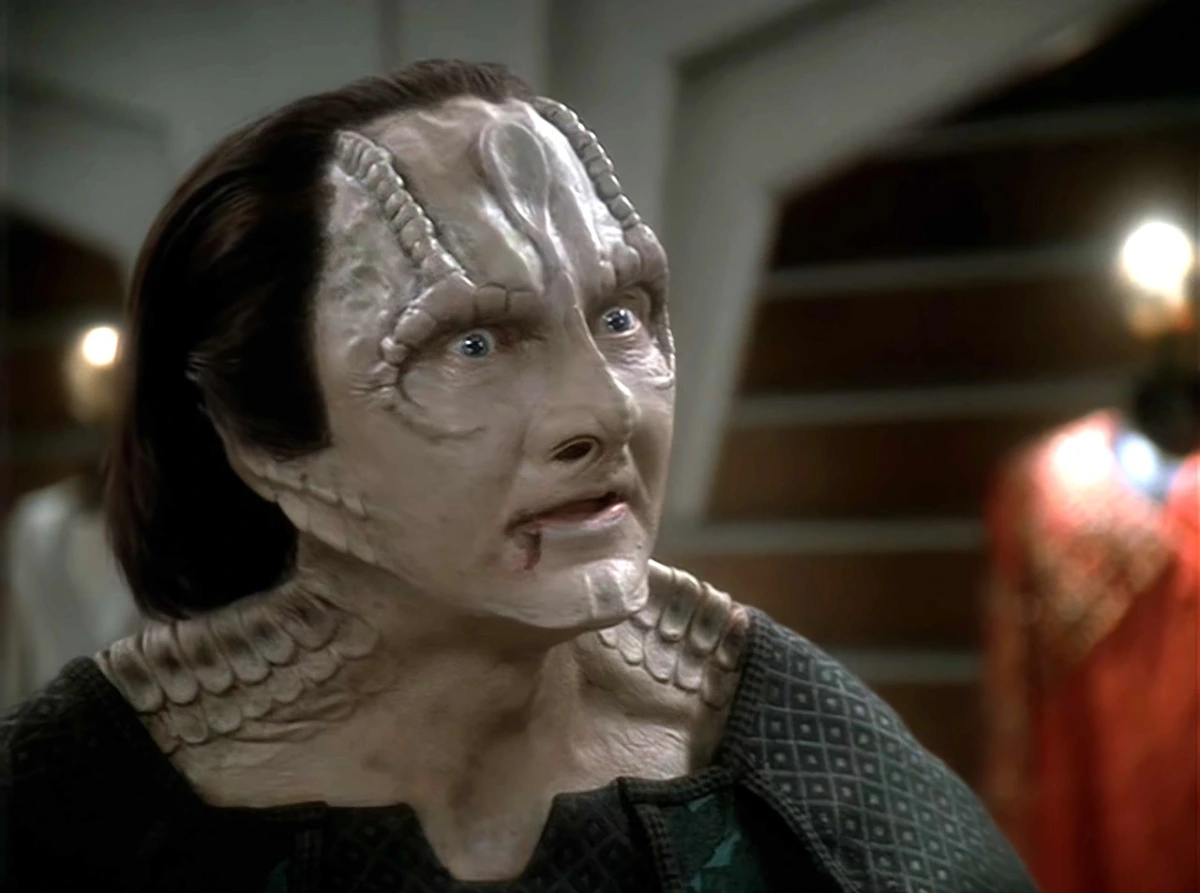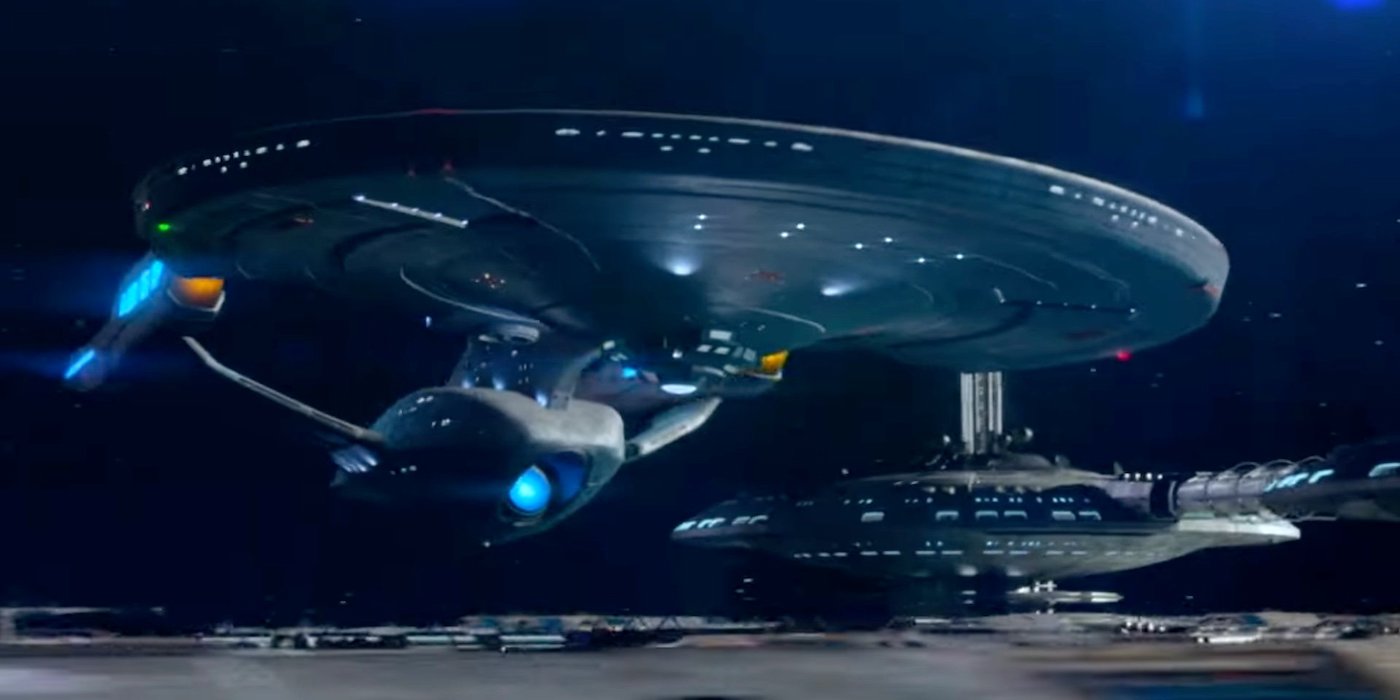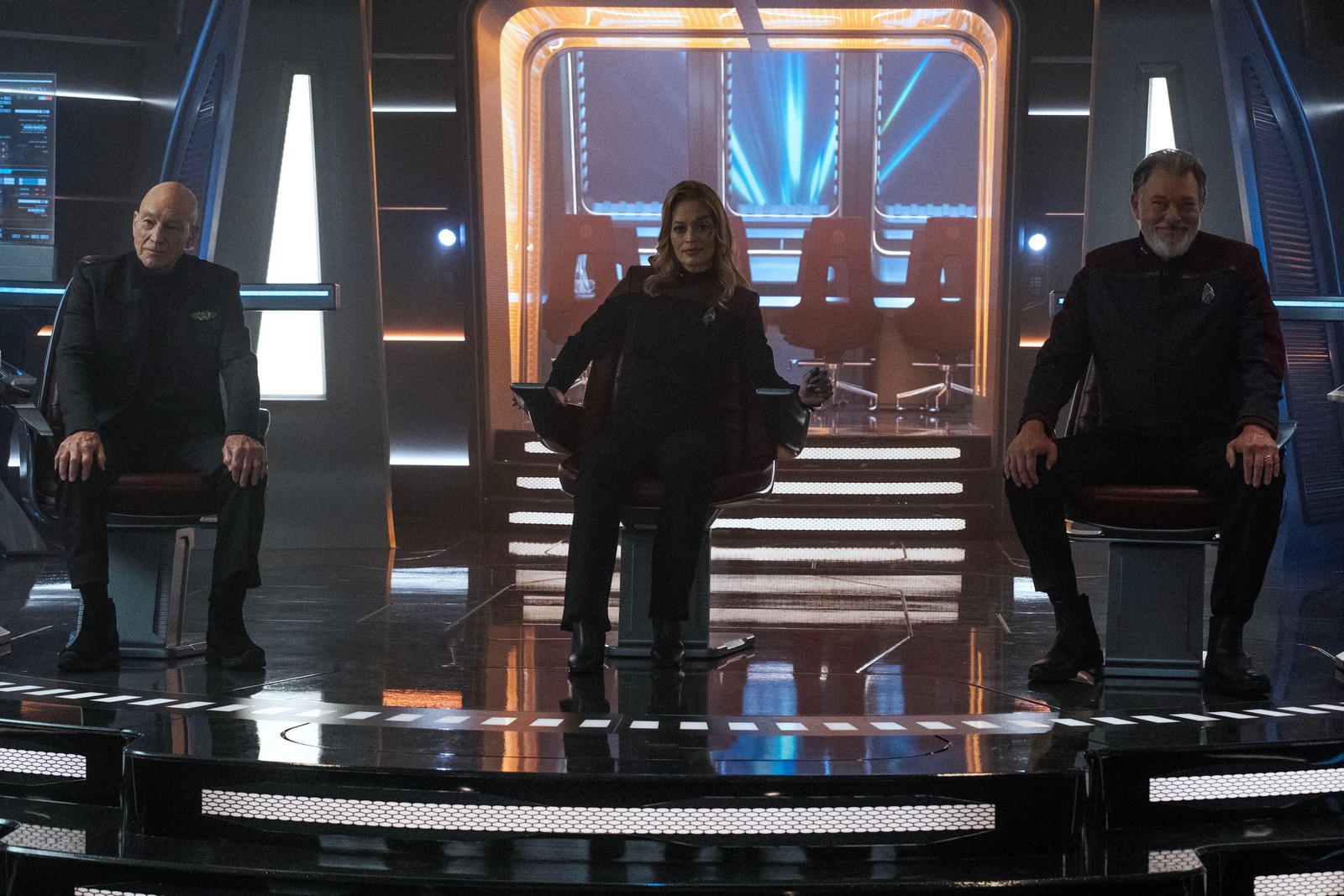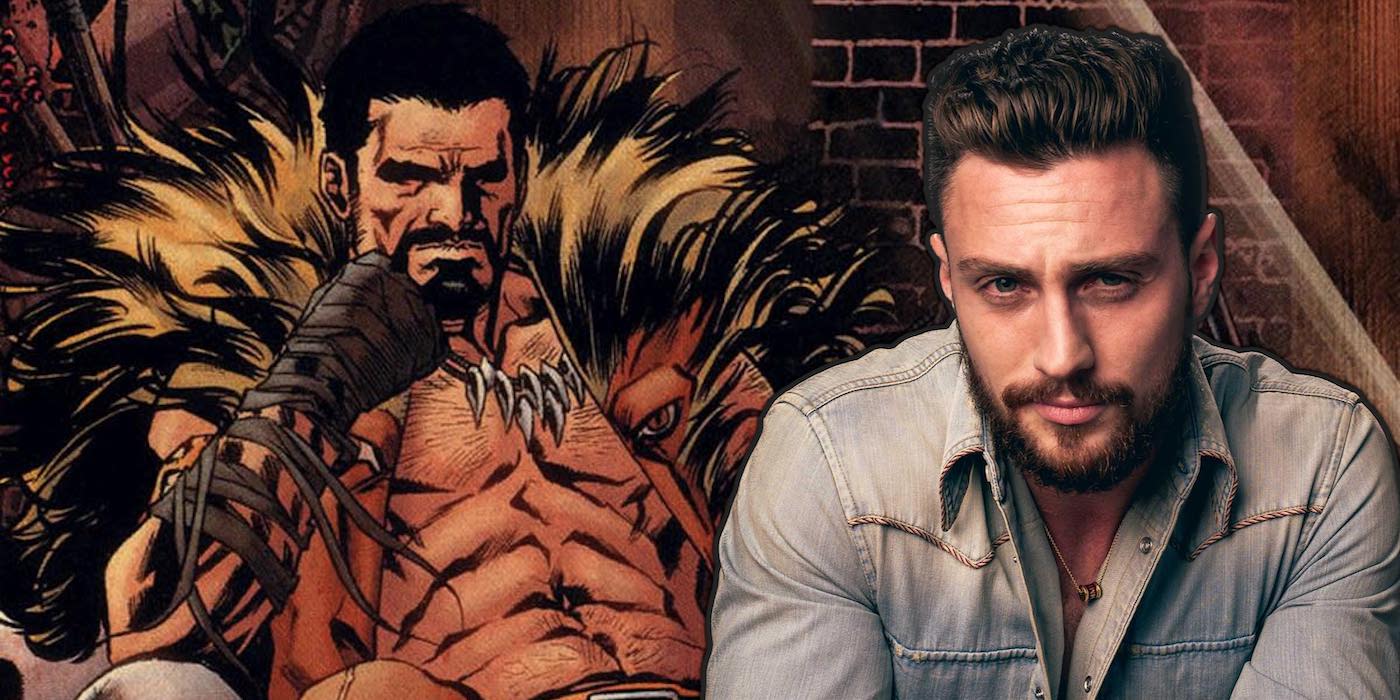Star Trek Legacy And Learning From ‘Picard’
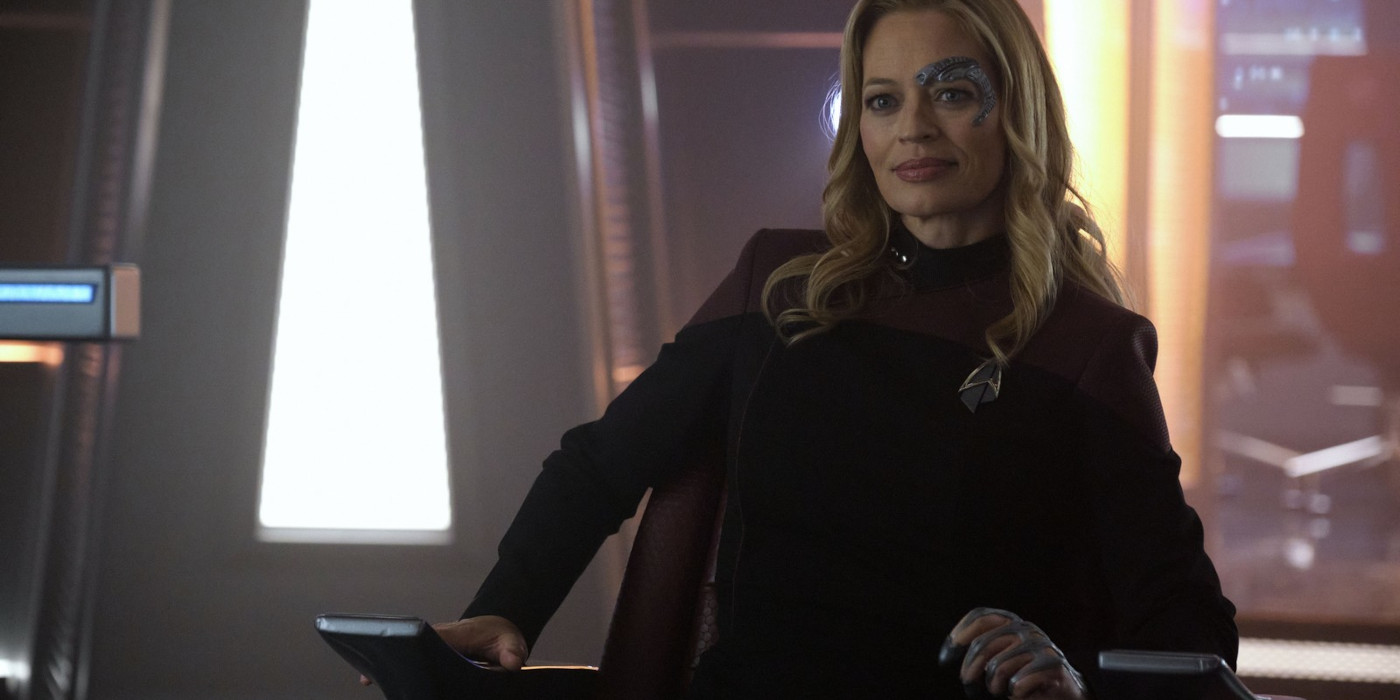

After three seasons, people genuinely like, even love, Star Trek: Picard. As we look towards to the future, what lessons can we learn?
Star Trek: Picard is, in many ways, a learning experience. The glib thing to say is that Star Trek shows are often bad in their first two seasons. But tradition is not the reason Picard misses its mark for two seasons straight. Terry Matalas is not Michael Piller. And the biggest lesson is more complex than just “write good”.
There’s an interesting debate concerning writers and audiences. How much do the creator’s desires and intentions matter? How much does audience expectation matter? There’s no correct answer for this — it’s all circumstantial. But you can see how Picard‘s problems early on involve too much respect for the former and not enough of the latter.
Michael Chabon wrote a lot of that first season while also visiting his father’s deathbed. And the grief of that experience is palpable throughout the story. Similarly, Patrick Stewart’s experiences of domestic abuse are all over the second season of Picard.
Fundamentally, there’s nothing wrong with tackling these traumas within a narrative, but they don’t really work for Star Trek: Picard. So the first lesson is…
Write For The Star Trek Show You’re Making
Seems obvious when you say it out loud. But there’s a fundamental disconnect between the first two seasons of Picard and the previous seven seasons of Star Trek: The Next Generation. Wanting this new show to have its own unique identity makes sense. But there’s got to be more connective tissue between old and new beyond legacy characters and Easter eggs.
There are TNG episodes with ambivalent endings. But most people remember the show as having neat resolutions. Picard doesn’t stay a Borg. Worf’s spine doesn’t stay broken. Data’s rights are always upheld. Heck the series finale involves Picard saving all sentient life across three separate timelines.
Basically, if you’re making a show with “Picard” in the title, whatever else you do, you’d better tell a hopeful story where things work out for our heroes. No incredibly sad, protracted android deaths. No suicidal moms.
I’m not saying “no bummers allowed” but it shouldn’t be the focus. That being said…
Not Every Star Trek Show Is TNG
It’s important to remember that not all the Star Trek shows lean into happy endings. So the lesson of Star Trek: Picard season 3 should not be “make all Star Trek shows like this”. What it means, again, is: write for the show you’re making.
So, for instance, if there are more Star Trek legacy shows, and one of them involves a bunch of Deep Space Nine characters, easy morality tales with clean resolutions are not going to cut it. The mission statement from DS9’s pilot episode “Emissary” boils down to “the past is dead, now move on”.
Similarly, Star Trek: Voyager, while given to celebrations of found family, is frequently about having to choose between two or more bad options. Janeway seldom comes out of a situation without a little muck on her. That’s what makes Star Trek: Prodigy such a great follow-up for Voyager — it, too, is about a complex, found family. But its villains also turn out to be kind of justified in hating the Federation.
Space: The Most Quintessential Frontier
Star Trek — it’s right in the name. A show in this franchise should, above all else, involve traveling far beyond the stars of our solar system. Seeking out new life and new civilizations is the mission statement. Not every criticism of Star Trek: Picard lands, but arguably the most universally accepted critique of its first two seasons is that it spends too much time Earthbound.
The third season gets us on a starship in episode one. We get new planets! New permutations on old ideas. Nebulas teeming with truly alien life. And behold, it was good.
In many ways, with or without more legacy shows, this is the lesson Star Trek has learned best in the last few years. Discovery lives in the farthest flung future yet. Lower Decks is about proving the Cerritos (and us along with them) deserve better than second contact. Strange New Worlds makes the Gorn scary and Sybok interesting. And Prodigy explores alien species, all while keeping that found family at the fore.
Whatever comes next has to keep that proud tradition.
But Don’t Always Listen To The Fans
This is a laundry list of nerdy demands. And Star Trek: Picard‘s third season does prove that fans can be right about a thing or two. But that doesn’t mean we’re right about everything. There are people out there still complaining that sometimes people in Starfleet say curse words or use modern colloquialisms. Please, ignore these people. Most of them swear like sailors themselves and just can’t accept change.
The same goes for people still mad because a Black woman got to be captain for a hot minute there on DISCO. Never, under any circumstance, bend the knee to ANYONE who uses “woke” as an insult — not just because it’s a silly way to be, but because it is fundamentally un-Star Trek.
Was it nice having those otherwise-angry YouTubers singing the praises of Star Trek: Picard? Absolutely! What a nice break! And more viewers means more Trek. Love that. But don’t cede ground to the same people who spent the last five years telling you Star Trek ain’t shit because it’s “woke”. They finally caught up with the rest of us. Good. Now they can keep pace.
May our Borg captains be gay as hell and may our futures continue to be as infinitely diverse and in as many infinite combinations as Star Trek first promised they could be nearly 60 years ago.

